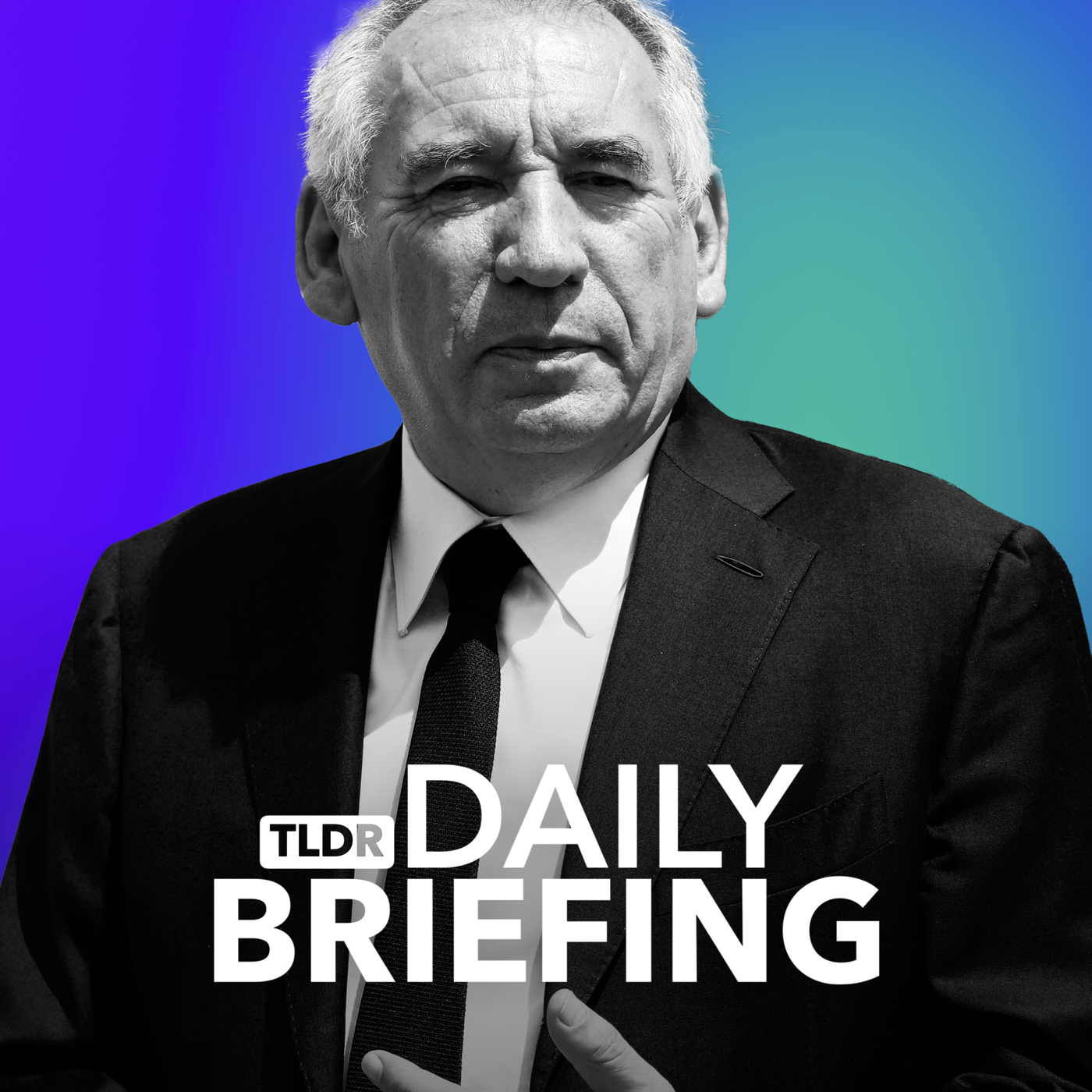
Deep Dive
Who is France's new Prime Minister?
François Bayrou, a long-standing ally of Emmanuel Macron and leader of the centrist Democratic Movement Party.
Why did Macron appoint a new Prime Minister?
Macron was forced to appoint a new Prime Minister after Michel Barnier was toppled by the gridlocked National Assembly, leaving France without a budget for 2025.
How long did Michel Barnier serve as Prime Minister?
Michel Barnier served for 90 days, making him France's shortest-serving Prime Minister.
What challenges does François Bayrou face as Prime Minister?
Bayrou must find a long-term budget solution and convince hostile parties to refrain from toppling his government, which is complicated by his close ties to Macron.
What did Joe Biden's clemency grant include?
Biden commuted the sentences of roughly 1,500 people and pardoned 39 others, marking the largest single-day act of clemency in modern US history.
Why did Biden grant clemency to 1,500 people?
The White House stated that these individuals were placed on home confinement during the COVID-19 pandemic and successfully reintegrated into their families and communities.
What is the current situation in Georgia regarding protests?
Mass protests have been ongoing for over two weeks due to contested election results, with heavy police violence reported and over 400 protesters arrested.
What caused the protests in Georgia?
The protests were sparked by allegations of vote rigging in favor of the ruling pro-Russian Georgian Dream Party during the October 26 election.
What is the latest economic news for the UK?
The UK's GDP unexpectedly shrank by 0.1% in October, marking the first back-to-back decline since the onset of the COVID-19 pandemic in 2020.
What sectors contributed to the UK's GDP decline in October?
Services showed no growth, while production and construction fell, and sectors like oil and gas extraction, pubs, restaurants, and retail experienced weak performance.
What is Tokyo's plan for a four-day working week?
The Tokyo Metropolitan Government plans to introduce a four-day working week for its employees starting April 2025 to address Japan's low birth rate and make child-rearing more feasible.
Why is Japan implementing a four-day working week?
Japan is facing an unprecedented fertility crisis, with a fertility rate of 1.3 and a projected birth rate below 700,000 in 2024, the lowest since records began in 1899.
- François Bayrou appointed as France's fourth Prime Minister in 2024
- Political crisis due to a divided National Assembly
- Challenge of securing a budget for 2025
Shownotes Transcript
This video is brought to you by Nebula. Today, France gets another new Prime Minister, Joe Biden grants clemency to 1,500 people, and the Tokyo government plans to introduce a four-day working week. From TLDR News, this is your daily briefing for Friday 13th December 2024.
After more than a week of consultations, speculation and anticipation, French Prime Minister Emmanuel Macron has finally named a new Prime Minister, François Bayrou, who becomes France's fourth Prime Minister since the beginning of the year. Bayrou is the leader of the centrist Macron-aligned Democratic Movement Party and is a long-standing ally of Macron, who endorsed him on his first run for president back in 2017.
Macron was forced to name yet another prime minister after then-Prime Minister Michel Barnier was toppled by the gridlocked National Assembly last week. Having held political consultations with lawmakers on Tuesday, Macron set himself a 48-hour deadline to name a new prime minister, a deadline he subsequently missed. The new time of announcement was set for Friday morning, but Friday morning came and the uncertainty continued as the clock passed midday without an announcement.
Eventually, Macron announced Beirut as the country's new prime minister, having held a long and reportedly tense meeting with the 73-year-old politician on Friday morning. France has been in a political crisis since this summer's snap legislative election resulted in the National Assembly being split three ways between left, centre and right blocs, with no clear path for a governing majority.
It took Macron more than 50 days to settle on a new Prime Minister, right-winger Michel Barnier, that he hoped would not be instantly toppled by the National Assembly. Barnier, in fact, lasted 90 days before being ousted by a no-confidence vote amid a budgetary impasse, making him France's shortest-serving Prime Minister. The ousting of Barnier means France still does not have a budget approved for 2025, with the end-of-year deadlock fast approaching.
Lawmakers are expected to vote next week on a stopgap funding measure to take France through the new year, but finding a long-term budget solution will be top of Beirut's agenda, and there is no time to waste. The question now is less whether Beirut can find a majority, but rather whether he can convince enough hostile parties, like those in the pan-left-wing NFP or far-right National Rally, to refrain from toppling his government.
However, Beirut's closeness to the Macron camp is likely to go down very poorly, with parties on both ends of the political spectrum. There's more on the way, but remember to subscribe and ring the bell for more Daily Briefing on Monday. Plus, if you want to support the channel like Ben Swanee, then consider joining the TLDR Daily Membership Programme for just £1.99.
On Thursday, outgoing US President Joe Biden commuted the sentences of roughly 1,500 people and pardoned 39 others in what was the largest single-day act of clemency in modern US history. Biden said he was extending mercy to people who have demonstrated remorse and rehabilitation, with the White House saying that the 39 individuals pardoned had been convicted of non-violent crimes.
As for the 1,500 who had their sentences commuted, the White House said there were people who were placed on home confinement during the COVID-19 pandemic and who successfully reintegrated into their families and communities. US presidents have the power to pardon, i.e. relieve a person of guilt and punishment, or to commute a sentence, which means reducing or eliminating the punishment without exonerating the wrongdoing.
It's customary for outgoing presidents to issue pardons and commutations during their final months of their term. Though earlier this month, President Biden drew criticism for issuing a pardon to his son Hunter, who had been convicted for gun and tax crimes. The Associated Press reports that Biden is under pressure from advocacy groups to pardon broad swathes of people, including those on federal death row, before Donald Trump takes office in January.
An update from Georgia now, where mass protests have been raging for more than two weeks now over the contested results of the parliamentary election. On Thursday, a delegation of six European MEPs travelled to Georgia to join a march protesting against the government's decision to suspend EU accession talks until at least 2028, showing how much momentum the anti-government movement currently has.
The six MEPs were Lithuania's Raza Jukvyniecheny and Poland's Mikael Szerba, both members of the centre-right European People's Party, France's Nathalie Loiseau and Bernard Goethe from the Centrist Renew Group, Germany's Tobias Kramer, a member of the left-wing Socialist and Democrat bloc, and the Netherlands' Rainer van Lanschot of the Greens.
It comes amid reports of heavy police violence, with at least 400 protesters arrested, including opposition leaders and activists, and more than 100 treated for injuries. More than 50 journalists have also reportedly been injured in the clashes. The protests were initially sparked by the results of Georgia's October 26 election, which showed the ruling pro-Russian Georgian Dream Party holding on to power with 53% of the vote.
However, there were widespread accusations of vote rigging in favour of George and Dream, with eyewitness accounts of people stuffing ballot boxes, harassment at polling stations and George and Dream voters being given multiple ballot papers.
In more bad news for the UK economy, GDP shrank unexpectedly by 0.1% in October, the first back-to-back decline in monthly GDP since the onset of the COVID pandemic in 2020. October's decline of 0.1% was preceded by a drop of the same percentage in September.
The Office for National Statistics Director of Economic Statistics said services showed no growth overall, while production and construction both fell, and oil and gas extraction, pubs and restaurants and retail all had weak months, partially offset by growth in telecoms logistics and legal firms.
The UK's Shadow Chancellor, Conservative Mel Stride, said the latest figures show the stark impact of the Chancellor's decisions and continually talking down the economy. However, Chancellor Rachel Reeves, while conceding that the numbers were disappointing, said, "...we've put into place policies to deliver long-term economic growth."
The latest data, which can be volatile and prone to revision, shows the scale of the challenge that the Labour government faces, especially having placed economic growth as their major priority, having won the general election in July.
In other news, the Tokyo Metropolitan Government will roll out a four-day working week program for its employees next spring, aimed at trying to reverse Japan's low birth rate. Starting in April 2025, Tokyo government employees will be allowed to free up one day of their choice each week, the idea being that greater flexibility and more time away from work will help make child rearing easier and more attractive.
It comes amid similar programs by local and central governments around the world, which pilot schemes have shown to improve productivity, the ability to attract and retain staff, and loss of work due to illness. For context, Japan has an unprecedented fertility crisis.
which Prime Minister Shigeru Ishida has called a quiet emergency that threatens the very foundations of the country. Japan's current fertility rate of 1.3 makes it one of the lowest-ranking countries in the world, and the number of babies born in Japan in 2024 is on course to fall below 700,000 for the first time since records began in 1899. Accordingly, Tokyo's efforts to reverse this worrying trend have resulted in some novel solutions.
For example, earlier this year the Metropolitan Government launched a dating app that required users to promise they're serious about using it for marriage and children rather than short-term relationships. As you've probably noticed, the news cycle is particularly fast right now, with coups, elections and governmental gossip happening all over the world.
In fact, with Trump heading into the White House, that chaos is only likely to get worse. If you're feeling a little lost and even a little depressed, then you might want to check out our series WTF USA, where we explain everything that's happened across the pond in the land of the free. Because while the election might be over, the number of WTF moments only looks likely to increase.
Unlike some of our other more serious videos, the tone of WTF USA is more light-hearted and takes something of an irreverent look at what's going on. Regular viewers will be pleased to hear that the series has been extended due to overwhelmingly popular demand over on Nebula. If these trends continue, aye!
Now if you didn't know, Nebula is an independent creator-owned streaming platform that specializes in thoughtful content. Over there you can find creators like Wendover Productions, Real Life Law and Legal Eagle, with many of them releasing their very own original series on the platform.
We're super proud of WTF USA, and we hope that with your support we'll be able to make other interesting, weird and entertaining series with Nebula in the future. So, signing up genuinely helps TL;DR to grow and expand. You can also watch every normal TL;DR video on Nebula ad-free, and in some instances before they land on YouTube.
If you're not a member already, then click our link in the description to get 40% off. That's just $30 a year or $2.50 a month. We really hope you check out the series, and as always, thanks for your support.
